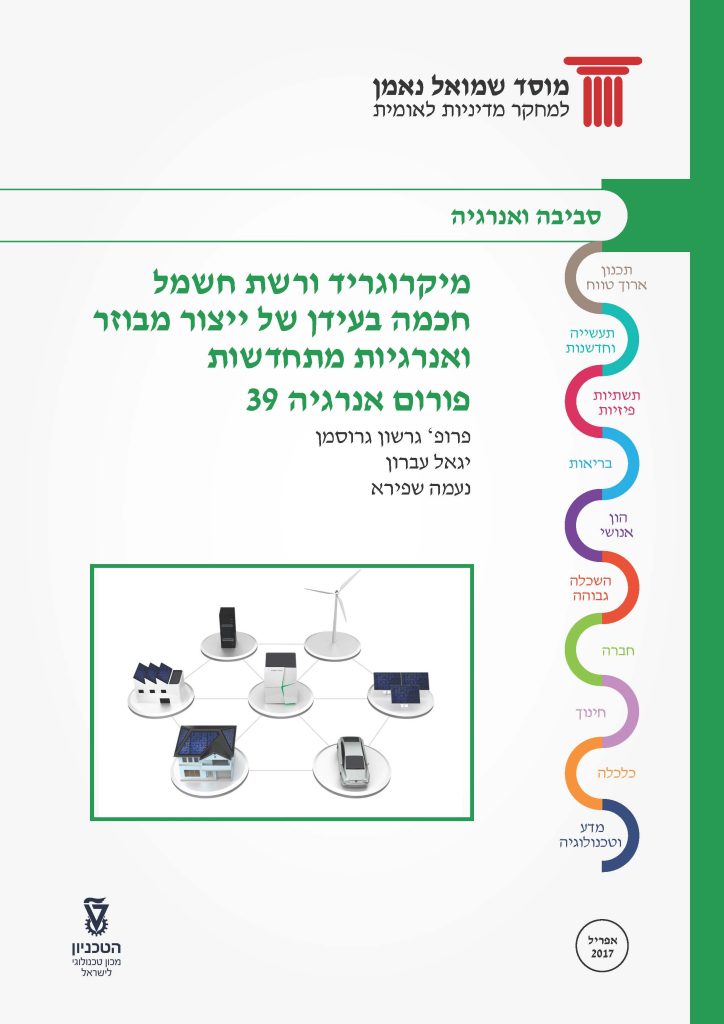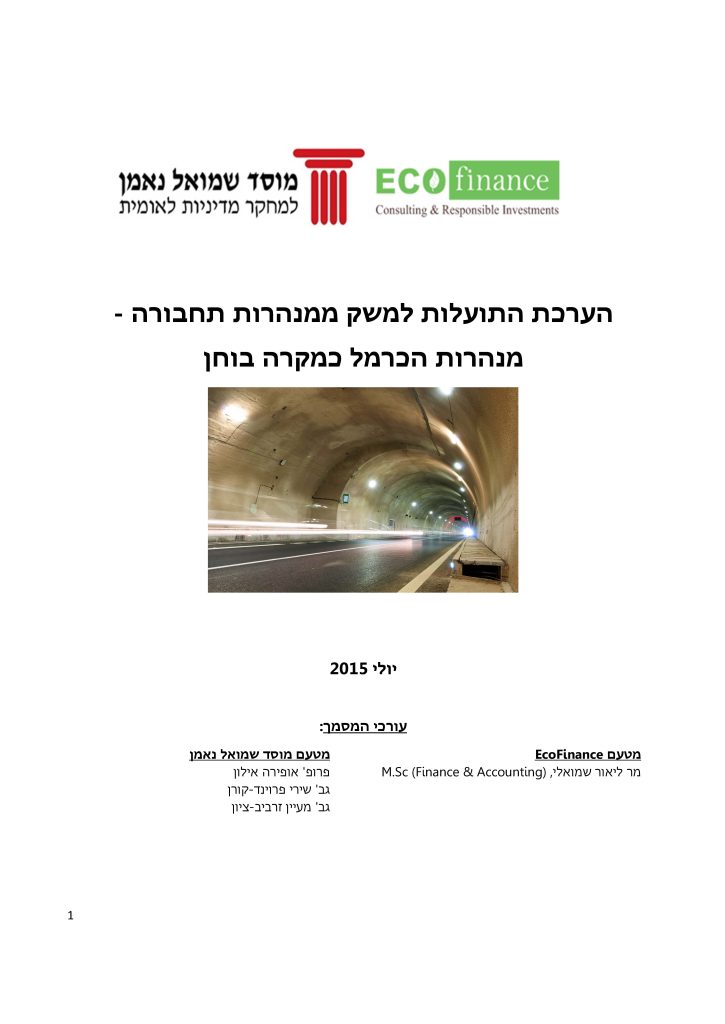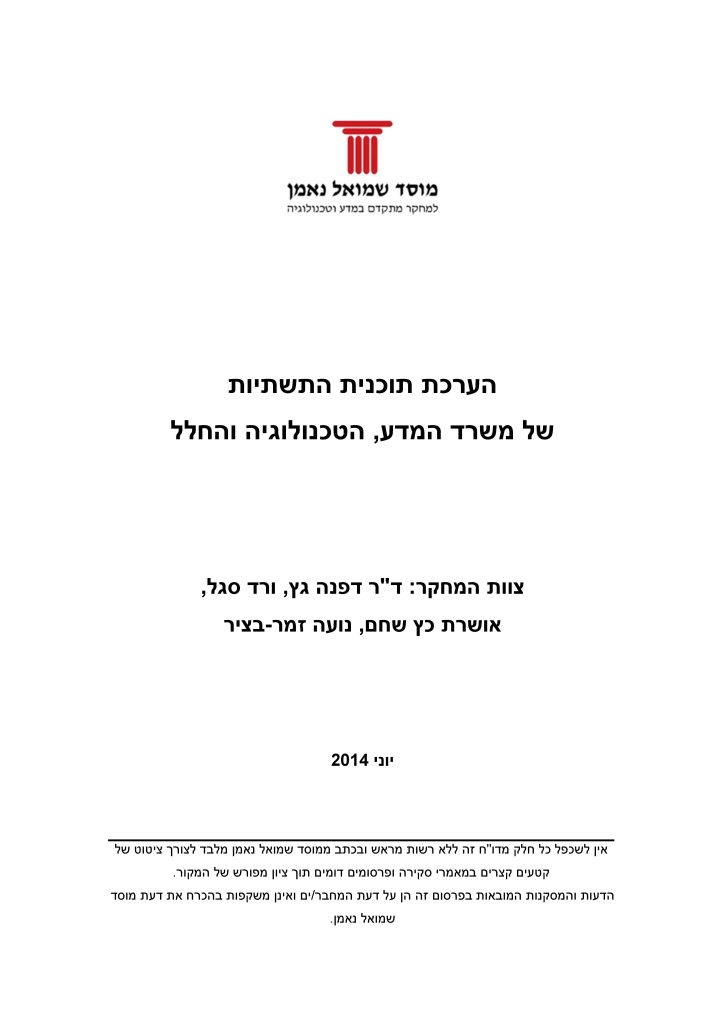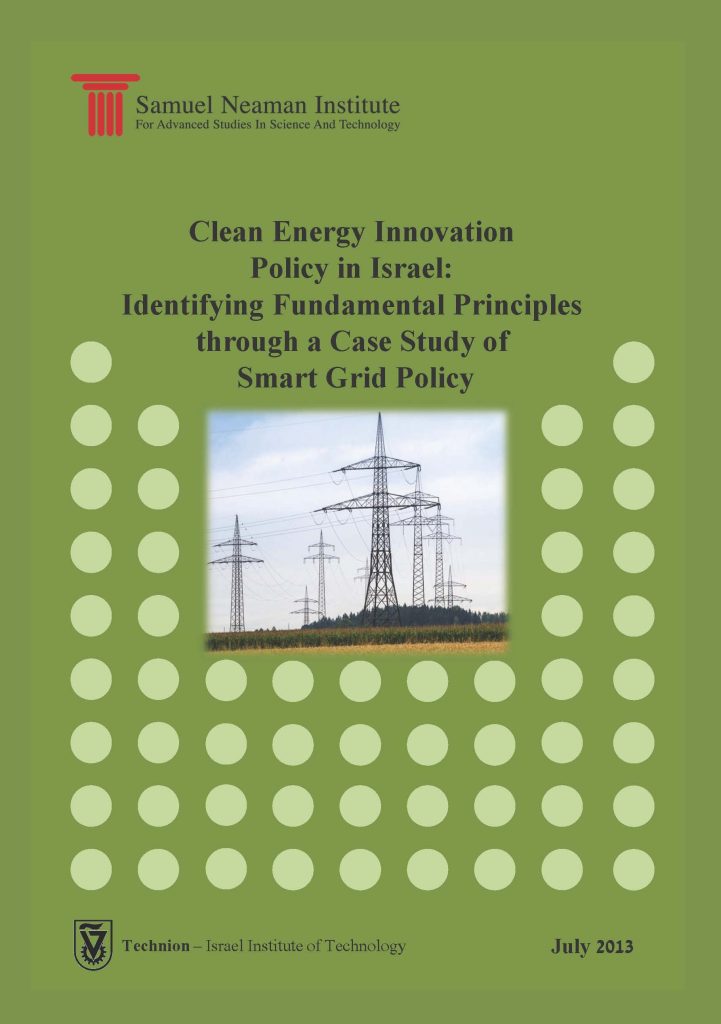Energy Forum 43: Breaking Israel’s energy isolation
The Israeli energy market has unique characteristics. One of its main problems is that the state is isolated from its neighbors in terms of energy supply and export, making it a kind of “energy island.” This applies to various fuels, such as natural gas, and to electricity: the state provides itself with electricity and is […]
Electric Vehicles Charging Infrastructure in Israel: Implementation Policy and Technical Guidelines
The objectives of the research are to review the best practices for the deployment of electric vehicle (EV) charging infrastructure, specify optimal models for the Israeli case, and provide actionable guidelines for implementation. The focus of the research is public charging infrastructure for passenger electric vehicles and Light Commercial Vehicles (LCV), which represents the vast […]
Energy Forum 39: Microgrid and Smart Grid in an age of distributed production and renewable energies

Smart Grid is under development in many parts of the world, designed to replace the conventional power supply network. It is one of the leading issues in a modern energy economy and enjoys national priorities and massive investments. In Israel too, the issue is a high priority on the national energy agenda, even though the […]
Feasibility of Public-Private Partnerships (PPP) waste treatment facilities in Israel
Construction of waste treatment facilities by Public and Private partnerships (PPP) in Israel The study, carried out as part of a research grant for the local authorities – the National Lottery and the Local Authorities Center examines the factors that hinder the creation of waste management plants in Israel, and in particular, whether the establishment […]
Evaluating Benefits of Transportation Tunnels – The Carmel Tunnels as a Case Study

The study analyses direct benefits (time and fuel saving) and indirect benefits (noise and air pollution reduction) due to driving in the Carmel tunnels. Results show positive benefits, yet, these benefits depend on time of travelling in the tunnels.
National policy in the area of Construction
National plan in the area of construction intended to leverage the expected huge scale of residential building construction for technological enhancement of the construction industry to improve the productivity, reduce the dependence on foreign workers and develop opportunities for employment of Israelis.
Evaluating the Infrastructure Program of the Science and Technology Ministry

The Scientific Infrastructure Program of the Ministry of Science and Technology was launched in 1995 in an attempt to bridge the gap between basic and applied research. The program is targeted in stimulating the “maturity phase” of potential applied technologies. Moving basic research towards an applied research track may encourage more efficient utilization of the […]
Mapping of National Research Infrastructures in Israel: updated mapping of Israel research infrastructures and international research infrastructures, which are used by Israeli researchers
The following is a summary of additional research conducted by the Samuel Neaman Institute following research conducted in 2010 “Mapping of Research Infrastructures in Israel” The purpose of the latter was to compile a database which would constitute the basis for a road map setting out the establishment of National Research Infrastructures in Israel. […]
Oil Shale Occurrences in Israel – Geological Updated information

Oil shale occurrences underlie about 15% of Israel’s land surface. The geological reserves (rocks with at least 7% total organic carbon) are estimated to exceed 370 billion tons. The potential yield of shale oil is more than 30 billion tons, with an average grade supposed to be ~20 G/T. Most of the deposits are close […]
Clean Energy Innovation Policy in Israel: Identifying Fundamental Principles through a Case Study of Smart Grid Policy

This project has been conducted in cooperation between the Samuel Neaman Institute for Advanced Studies in Science and Technology (SNI) and the London School of Economics and Political Science (LSE). The goal of the project has been to analyze policy lessons emerging from Israel’s successful efforts to spark, direct, and accelerate the process of technological […]
